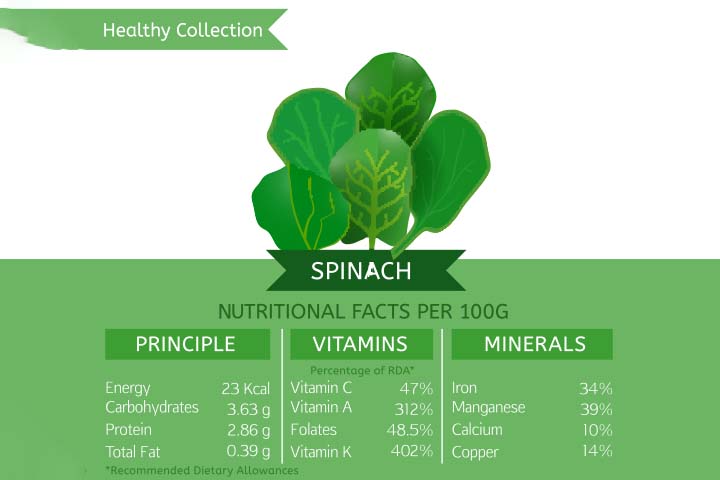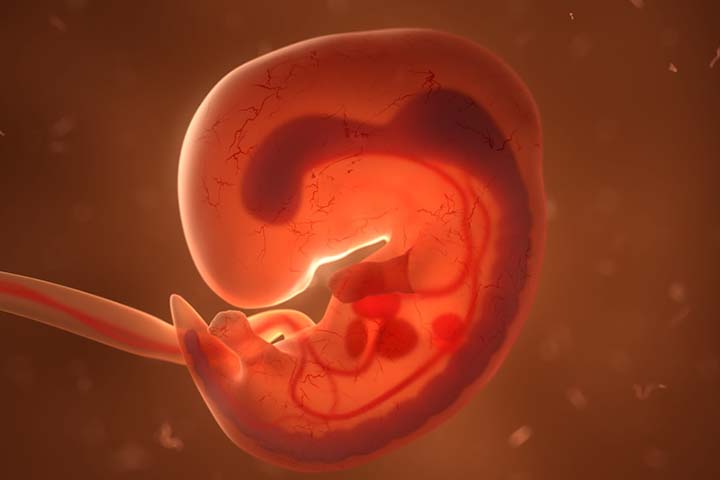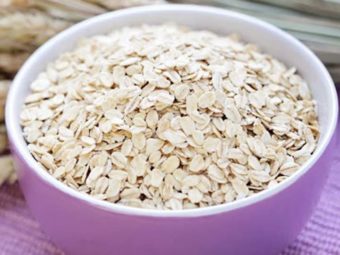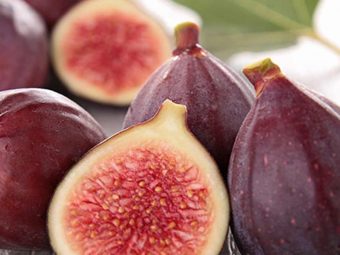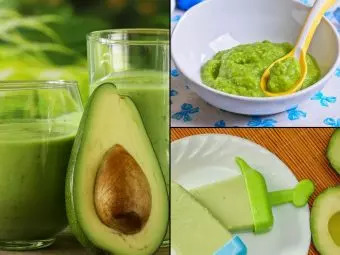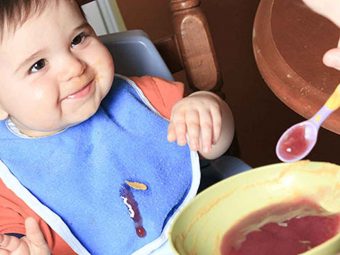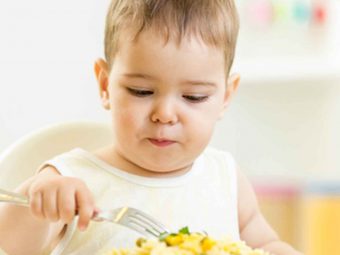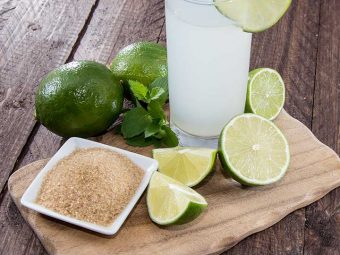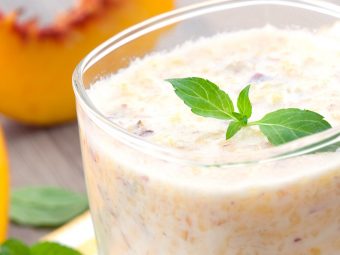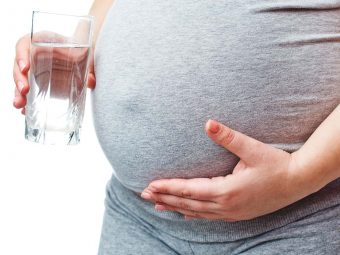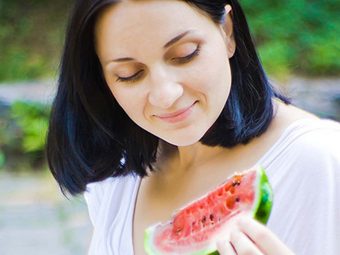
Image: ShutterStock
A pregnancy diet should contain all the required nutrients. Consumption of spinach during pregnancy can provide you with protein, minerals, iron, and vitamins. It belongs to the Amaranthaceae family of flowering plants and offers several health benefits. Read on to learn more about it, including its benefits for pregnant women and more.
Is It Safe To Eat Spinach During Pregnancy?
You can consume spinach during pregnancy, but in moderation.Spinach contains folic acid, which is one of the essential nutrients that pregnant women should include in their diet.Folate or folic acid helps preventbirth defects(1).
This green leafy vegetable also contains iron, which is another vital nutrient required in pregnancy(2).But see that you are not consuming spinach in excess. For instance, if you are susceptible to kidney stones, then you may want to cut down the consumption of spinach.
Nutritional Facts Of Spinach
Image: Shutterstock
Spinach is rich invitamins A, C, E, and K, magnesium, folate, potassium, iron, and copper.It is also a good source of omega 3 fatty acids, dietary fiber, andflavonoidsiX一般的天然物质found in fruits, vegetables, and grains that offer various health benefits.(3).
According to the US Department of Agriculture, 100 grams of spinach contains 23kcal, 99mg calcium, 79mg magnesium, 558mg potassium, 28.1mg vitamin C, and 194µg folate. In addition, it also has 79mg sodium and 49mg phosphorus .
All these nutrients of spinach can be beneficial to the mother and the baby.
Benefits Of Spinach During Pregnancy
The nutrients in spinach can be helpful in the below-mentioned ways:
- Iron and folic acid:During pregnancy, the blood volume in the body goes up by 30 to 50%(4)that can increase iron and folic acid requirement of the body. In 2019, theWorld Health Organizationreported a global prevalence of 36.5% for anemia in pregnant women. Regularly consuming spinach may help meet the iron requirements of the body and prevent anemia.
- Calcium:Increased calcium levels may result in low blood pressure, while low levels of calcium may lead to hypertension in pregnancy.The bioavailability of calcium in spinach might help in maintaining the blood pressure levels(5).Thus it may help prevent gestational hypertension.
- Vitamins:Spinach, a rich source of vitamins A and C micronutrients, may help strengthen the immune system(6).Spinach can help you meet the daily requirement of vitamin A, which is required for your health as well as fetal development(7).Consuming spinach during pregnancy adds to your daily intake ofvitamin B, which is essential for the development of the baby’s nervous system(8).Adequate intake of prenatal vitamins may also help prevent several birth defects. In addition, the doctor may recommend prenatal vitamins to ensure optimal nutrient absorption.
Image: Shutterstock
 Quick fact
Quick factHow Much Spinach Should You Have During Pregnancy?
The Central District Health Department, Idaho, recommends one serving of spinach (half-a-cup) a day for pregnant women(9).Excess consumption of spinach might lead to some adverse effects.
Possible Side Effects Of Eating Spinach During Pregnancy
Ingesting too much of spinach when pregnant can result in some side effects such as:
- Kidney stones:Pregnant women could have more chances of developing calcium phosphate stones, especially during the second and third trimester.Also, high intake ofoxalateiXAn organic compound usually found in leafy greens that can bind to minerals to form compounds.foods may result in urinary tract infections. However, consuming spinach in moderate amounts may not pose this risk(10).
 Quick tip
Quick tip- Diarrhea:Expecting moms are susceptible to李氏杆菌病iXAn infection caused by eating contaminated food.andsalmonellosisiXA food infection caused by a bacteria called Salmonella..Spinach leaves may have bacterial contaminants that could lead to diarrhea. Therefore, always wash the leaves properly before consumption(11).
Image: Shutterstock
- Salicylate allergies:Salicylate, especially in thethird trimester, can cause bleeding and prolong the labor. As spinach contains水杨酸iXAn over-the-counter drug used to reduce pain, fever, and inflammation., minimize its consumption in the last couple of months of pregnancy(12)(13).
Ways To Include Spinach In Pregnancy Diet
Prenatal nutrition plays a crucial role in promoting maternal health and fetal development. However, it is important to follow dietary recommendations and consume a balanced diet, as excessive intake of certain nutrients can be harmful.
- Prepare spinach soup and enjoy it for your lunch or dinner
- Spinach omelet with cheese is not only healthy but also delicious
Image: Shutterstock
- A glass of nutritious spinach smoothie could be a healthy choice
- You may include spinach in your vegetable salad as well
- Sauté spinach in olive oil and garlic, and have it with bread
 Quick tip
Quick tipNext, we answer some questions about spinach intakemanbet安卓版.
Frequently Asked Questions
1. Can I eat raw spinach when pregnant?
Yes, you can eat raw spinach when pregnant. However, you should buy fresh spinach and clean it thoroughly under cold water to ensure its safety. You can also use a vegetable brush to remove dust and dirt from the spinach leaves’ surface.
2. Does spinach cause gas during pregnancy?
Spinach is a fibrous vegetable that facilitates smooth digestion. However, its excessive consumption, especially in raw form, can cause gas and heartburn in some expecting mothers.
3. Can spinach help with common pregnancy issues such as constipation and anemia?
Constipation and anemia are common during pregnancy. Spinach contains iron, which can help to-be-mothers dealing with anemia. Moreover, spinach is a rich source of fiber and can help with smooth bowel movement, thereby preventing constipation(16).
Consuming spinach during pregnancy is safe and may offer you essential pregnancy nutrients, including protein, minerals, iron, and vitamins. However, stick to eating spinach in moderation to avoid deficiency or overconsumption. If you like the taste of this green leafy vegetable, you may incorporate it into your pregnancy diet as a soup, smoothie, salad, snack dips, or as an ingredient in various meals such as scrambled eggs, sandwiches, and more. Also, ensure to use fresh spinach leaves that have been thoroughly washed before use.
Infographic: Benefits And Risks Of Eating Spinach When Pregnant
Spinach is a green leafy vegetable recommended for a balanced diet. Though it is beneficial for expectant mothers, overeating might be detrimental. To learn more about the advantages and disadvantages of eating spinach while pregnant, see the infographic below.
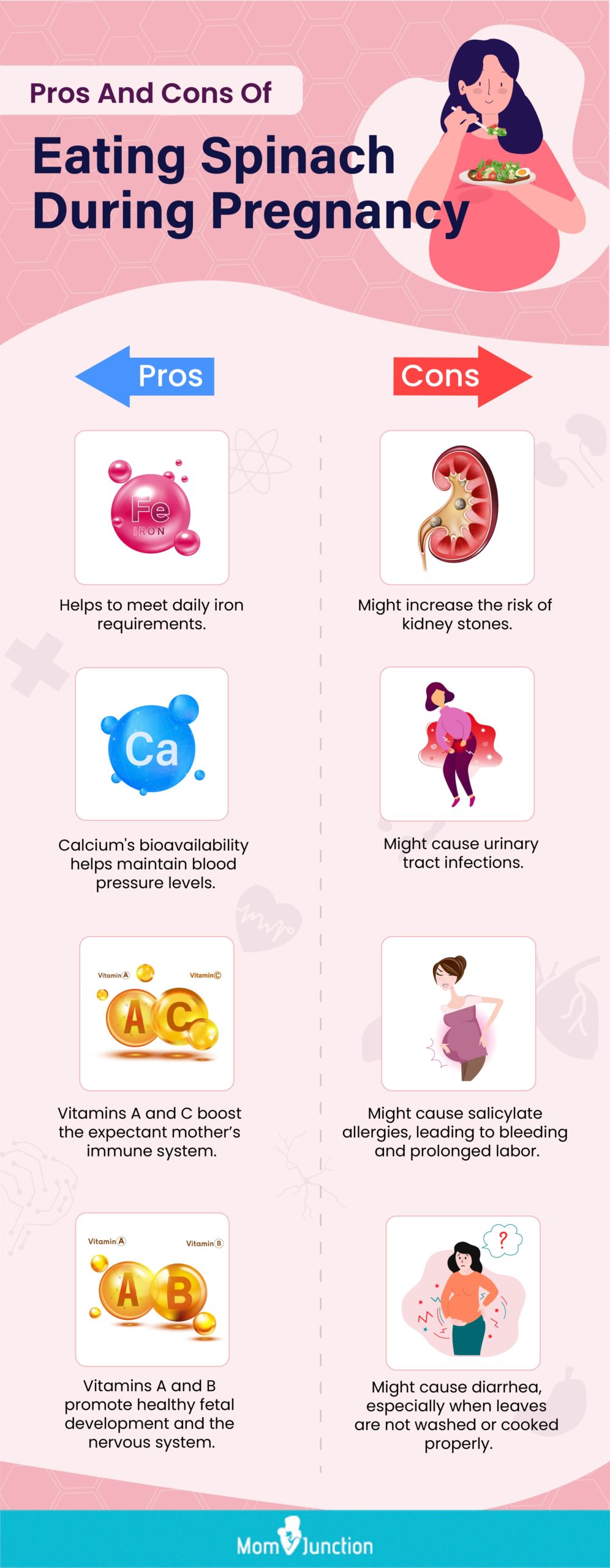
Illustration: Momjunction Design Team
Get high-quality PDF version by clicking below.
Download Infographic
Key Pointers
- Spinach is a nutrient-dense, green leafy vegetable that is rich in folate, iron, calcium, and several other essential nutrients for pregnant women.
- Including spinach in the diet during pregnancy can help prevent birth defects in the developing fetus and other pregnancy-related complications.
- Spinach should be thoroughly washed and cooked before consumption to reduce the risk of foodborne illness.
- It is advised to consume spinach within the recommended limits during pregnancy as excessive intake may cause diarrhea, and its high oxalate content can alter the absorption of calcium.
- Pregnant women with a history of kidney stones or other kidney disorders should consult their doctor before consuming spinach.
References:
2.Anemia and Pregnancy;University of California San Francisco
3.Spinach, raw;United States Department of Agriculture
4. Priya Soma-Pillay et al.,Physiological changes in pregnancy;National Center for Biotechnology Information
5.Calcium;Oregon State University
6.Nutrition;Allina Health
7.Vitamin A;National Institutes of Health
8.Spinach;Foundation Louis Bonduelle
9.Eating for a Healthy Pregnancy;Central District Health Department, Idaho
10. L. Frassetto & I. Kohlstadt,Treatment and Prevention of Kidney Stones: An Update;American Academy of Family Physicians
11. S. K. Mritunjay and V. Kumar,A study on prevalence of microbial contamination on the surface of raw salad vegetables;Indian Institute of Technology
12.Salicylate (Oral Route, Rectal Route);Mayo Clinic
13. J. Hennecke,Salicylic add – a problem substance for allergy sufferers (2014)
14.Spinach.Washington State University
15. J. Hennecke,Reducing Oxalates.华盛顿大学
16.High-fiber foods.Medline Plus



